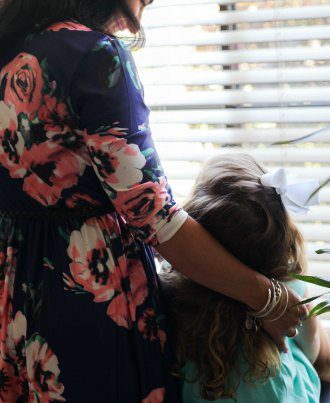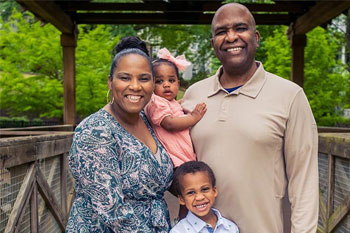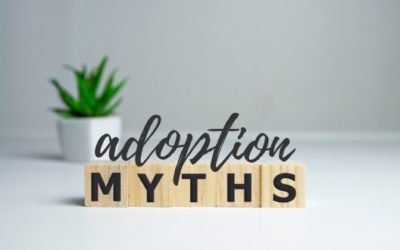 Whether you are considering adoption or you have already adopted a newborn and are looking toward the future, you might worry about the questions your child will ask as he or she grows older.
Whether you are considering adoption or you have already adopted a newborn and are looking toward the future, you might worry about the questions your child will ask as he or she grows older.
Today, the nature of adoption has changed, and so have the types of questions children ask as they grow older. Open adoption answers many of the tough questions adoptees have asked in the past. As a result of open adoption, children no longer have to wonder what their birth parents’ names are, where they were born, or what their birth mother’s labor and delivery was like. Adoptive families that are open to sharing may discuss adoption and the child’s birth family openly.
Of course, this does not mean that there are no questions that remain. They are simply different and sometimes more in-depth. As your child grows, you might want to consider how you can answer or seek the answers to these common questions.
What Were the Circumstances Surrounding My Adoption?
Your child might want to know how they came to be yours, even if they already know who their birth parents are. Why did their birth mother choose you to become their parents? Did you know each other ahead of time? Did you work through an agency? How did you meet, and what were your first impressions? What was it like for you to meet your new baby for the first time?
Where Did My Name Come From?
Your child may be curious about their name. Who chose the name? If their birth mother chose a different name, what was it? If your child was given a name in honor of somebody, this is a great time to talk about its meaning. You might also talk about any ways in which you chose to honor the child’s birth family with a name.
What Happened to My Birth Mother and Birth Father?
Some adoptees may wonder if their birth parents are still together or if they had any other children together. Were the other children placed with adoptive families? Questions like these could prompt a child to wonder why he or she was placed with a family if the birth parents opted to parent other children.
Some open adoptions may provide in-person visits that allow children to answer these questions for themselves. Open adoptions that involve letters may not provide the clear answers a child is looking for. Additionally, children process this information differently than adults do. You may need to be prepared with answers to these types of questions to prevent your child from questioning his or her self-worth.
Did My Birth Family Love Me?
Of course, your child’s birth family loved him or her. That is part of the reason why they made the compassionate choice to place him or her with an adoptive family.
Your child may have questions about their birth family’s feelings about the decision. As you talk to your child about their adoption, don’t be afraid if the answers to these questions are very complex and bring up many emotions. Children may struggle with the complexity of loving choices, so you may need to explain how love can translate into choosing adoption.
What Medical Concerns Should I Know About?
Many adoptees wonder if there are medical issues they need to be concerned about. They need to know that heart disease or diabetes runs in their family so that they can make smart decisions for their own health in the coming years. Your child may also want to know about the biological link to mental health issues and addiction. One of the benefits to open adoption is being able to answer these kinds of questions for your child at any time.
Questions Can Be Scary
Even if your child already knows his or her birth parents and knows about the adoption, you may have some concerns about the way your child feels. As a result, some adoptive parents are guarded about the information they share with the child, because they might believe the children are too young for certain answers. But, in some ways, these parents are actually seeking to protect themselves. Maybe they feel like their child would want to live with his or her birth family.
Children may also be afraid of some of the answers to these questions. Adoptees may need reassurance they are loved, especially when they reach an age where they begin to question more of the world around them.
Adoption is a complex issue, and nobody has all the answers. Know that it is normal for children to have questions that you struggle to answer. Counseling is available to help you and your child deal with the questions adoptees might ask.
Stay informed by subscribing to Lifetime Adoption’s blog!
If you liked reading about common questions that adoptees ask today, consider subscribing to our blog. You’ll get our new blog posts delivered straight to your email, as soon as they’re published! Simply enter your email address below:
Founder of Lifetime Adoption, adoptive mom, adoption expert, and Certified Open Adoption Practitioner (C.O.A.P).
Since 1986, adoption expert Mardie Caldwell has been dedicated to bringing couples and birth parents together in order to fulfill their dreams.
“Many years ago, I was also searching for a child to adopt. We didn’t know where or how to get started. Through research, determination, and a prayer, our dream of a family became reality. I started with a plan, a notebook, assistance from a caring adoption consultant and a lot of hard work; this was my family I was building. We had a few heartaches along the way, but the pain of not having children was worse!
Within weeks we had three different birth mothers choose us. We were overwhelmed and delighted. Many unsettling events would take place before our adoption would be finalized, many months later. Little did I know that God was training and aligning me for the adoption work I now do today. It is my goal to share with our families the methods and plans which succeed and do not succeed. I believe adoption should be affordable and can be a wonderful “pregnancy” for the adoptive couple.
I have also been on both sides of infertility with the loss of seven pregnancies and then conceiving by new technology, giving birth to a healthy daughter. I have experienced first-hand the emotional pain of infertility and believe my experience allows me to serve your needs better.
It is my hope that for you, the prospective parents, your desire for a child will be fulfilled soon.”






0 Comments